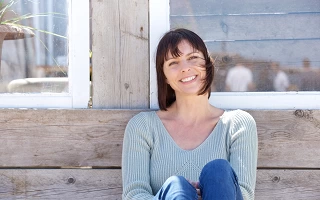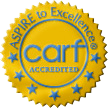Kim always enjoyed the feeling she got from drinking alcohol. But when she started spending more time drinking than working, things took a turn for the worse.
Kim always enjoyed the feeling she got from drinking alcohol. But when she started spending more time drinking than working, things took a turn for the worse.
Struggling to support herself, Kim moved in with her best friend and her best friend’s mom. But when her best friend’s mom passed away, she was left with nowhere to go. It only took one night of sleeping in a park before Kim knew she needed help.
Kim’s family member got her in touch with Catholic Charities’ PATH program, which assists individuals with severe mental illness who are experiencing homelessness. From there, Kim got connected to the Community Re-Entry program. Her family member also got in touch with a shelter so Kim had a place to stay.
Community Re-Entry Helps Those with Justice System Involvement
The Community Re-Entry program provides safe, supportive housing and case management to individuals in Northern Arizona who have had justice involvement. Because Kim was working to overcome alcoholism and had a DUI conviction, she was a perfect fit.
After almost three months at a shelter, Kim moved into the Mohave Sage House for women in Kingman, Ariz. Now that she had housing, her next priority was a job.
Finding Assistance on the Path to Stability
With the help of ARIZONA@WORK, Kim got a job at Eads Quality Top Shop, a family-owned countertop business. Still, she had many expenses to pay and worried she wouldn’t have enough to pay rent.
Thankfully, she was able to get six months of rental assistance from WACOG (Western Arizona Council of Governments), a governmental nonprofit that serves low-income households in La Paz, Mohave and Yuma Counties.
Because of her DUI and limited transportation options, it was difficult for Kim to get home from work in time for the mandatory meetings at Mohave Sage House. So, ARIZONA@WORK got her an electric scooter to help ease the burden.
Community Re-Entry Clients Have a Strong Support System
In her time at Mohave Sage House, Kim has made incredible progress. In addition to holding a job and paying off the money she owed from her DUI, she has also become a role model for others in the house.
“The education I have gotten since I've lived here is amazing. And I've always said I've had a very blessed life,” says Kim.
Her case manager, Elizabeth Kinkade, has provided invaluable support. Even when Kim relapsed, Elizabeth responded with empathy rather than anger or disappointment. Elizabeth checks in often and genuinely cares how Kim is doing.
Awareness of and Access to Resources Makes a Difference
Kim says the most helpful thing for those who are in her situation is getting the word out about the programs and assistance available. She has seen so many people come in and out of shelters without making progress because they’re overwhelmed and don’t know what steps to take.
Today, Kim has been at her job for almost a year and enjoys her hobbies of cooking and baking. She has also since moved into her own room at Mohave Sage House.








